When searching online, I constantly find myself shaking my head and chuckling at the major brands who suffer from PPC message mismatch. If there’s one thing that has held true for pay-per-click (PPC) ads since their inception, it’s that the focus has to be laser tight. Any wiggle room typically results in confused customers who shrug their shoulders and click away.
Message match starts with the search query typed into Google (or Bing or any search engine). To convert well, your ads should mirror the search string as closely as possible. With the tools available in Google AdWords, Facebook and practically every other PPC platform, there is rarely a valid excuse for PPC message matching issues.
Let’s take a look at a handful of examples of this all-too-common phenomenon so you can see firsthand just how it can deter customers from buying.
#1 The Info is There, but You Didn’t Take Me to it
Searching for “coffee gifts” I came across this ad that mentioned gift baskets. While the ad copy wasn’t a solid match with my search string, I realized that coffee gifts are often in the form of gift baskets so I took a shot and clicked.
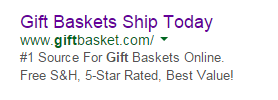
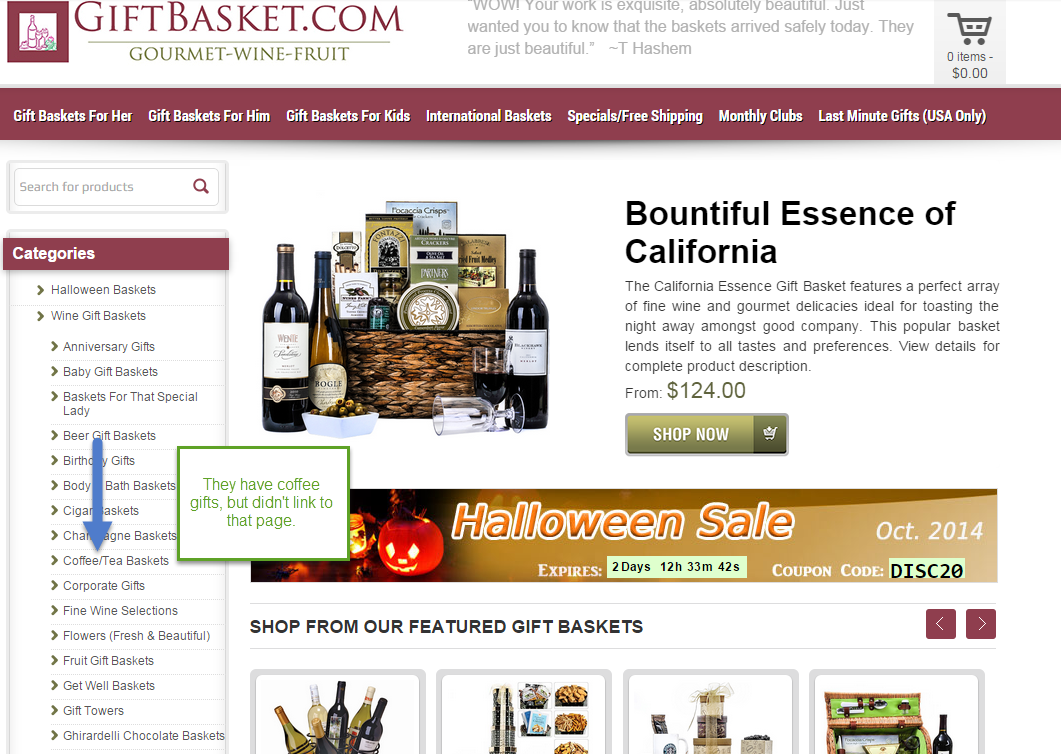
I was disappointed to find that I landed on a generic gift basket page. I was shocked when I noticed that this site actually has a coffee/tea baskets page, but simply neglected to connect that page with their ads. With a couple of clicks and the use of dynamic keyword insertion, this ad could be highly targeted with a keyphrase in the ad copy that leads me to the precise page I wanted to land on. General sloppiness.
#2 Everything But What I Want
While searching for “gourmet cookie gifts” I came across this ad that was a partial match with the headline of “gourmet gifts.” A quick look at the landing page shows cookies in the picture, but not specific cookie gifts. After clicking several of the links, I began to realize that some of the items listed on the landing page included cookies along with other foods.
Here’s the thing… this site offers cookie gifts (as in gifts that are all cookies) so why make visitors work so hard to find what they want? If the site owners wanted to continue using the same landing page, I would at the very least suggest adding a sentence or two of copy that lets searchers know that these options include cookies.
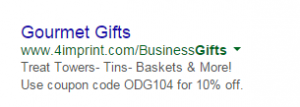
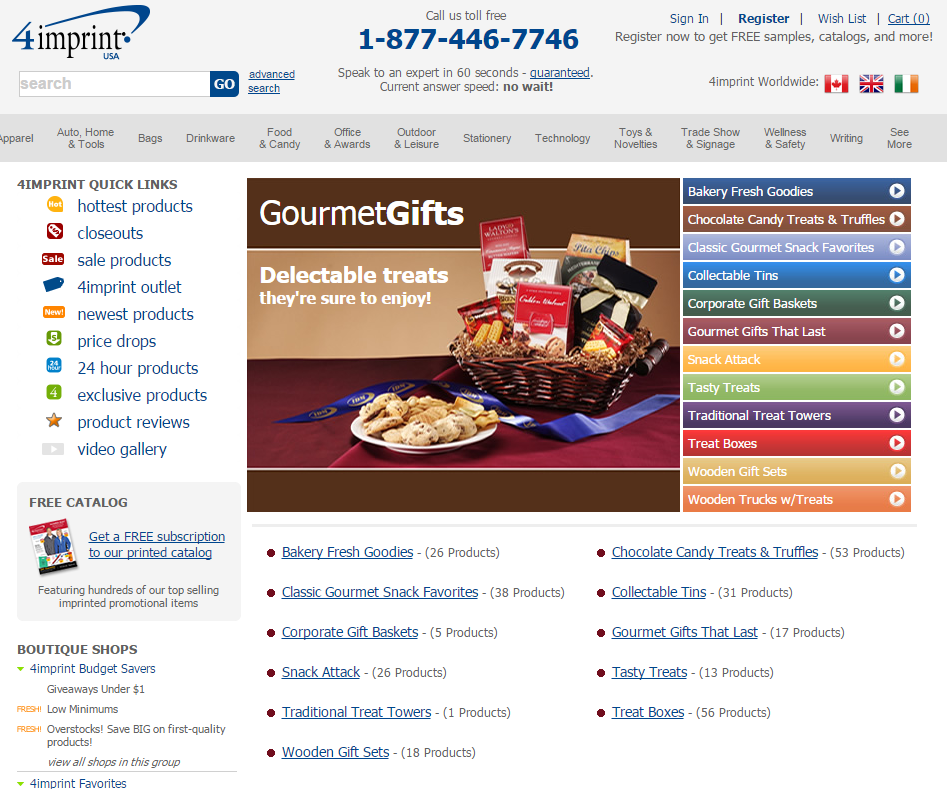
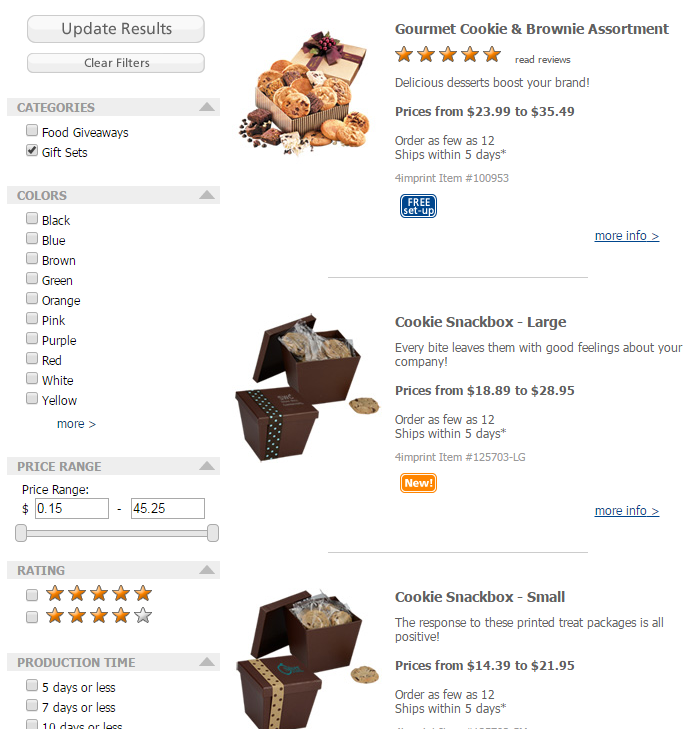
#3 Unfulfilled Promises
While scrolling through the results for “discount eyeglasses” I ran across what I thought would be a great example of PPC message match. Uh… not. While the headline of the ad was a direct match to my query and the body copy reinforced the match by offering the promise of a discount, I was let down upon arrival on the landing page.
The top of the page looked like every other page of the site. It hailed “factory direct prices,” but no discount deal. I kept scrolling and – at the very bottom of the page – I finally found two offers. One was a buy-one-get-one-for-50%-off deal and the other was the long-lost $10 off discount.
If you promise something in your PPC ad copy, make sure you fulfill that offer at the top of the landing page where it is easily seen.
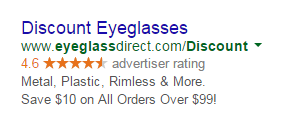
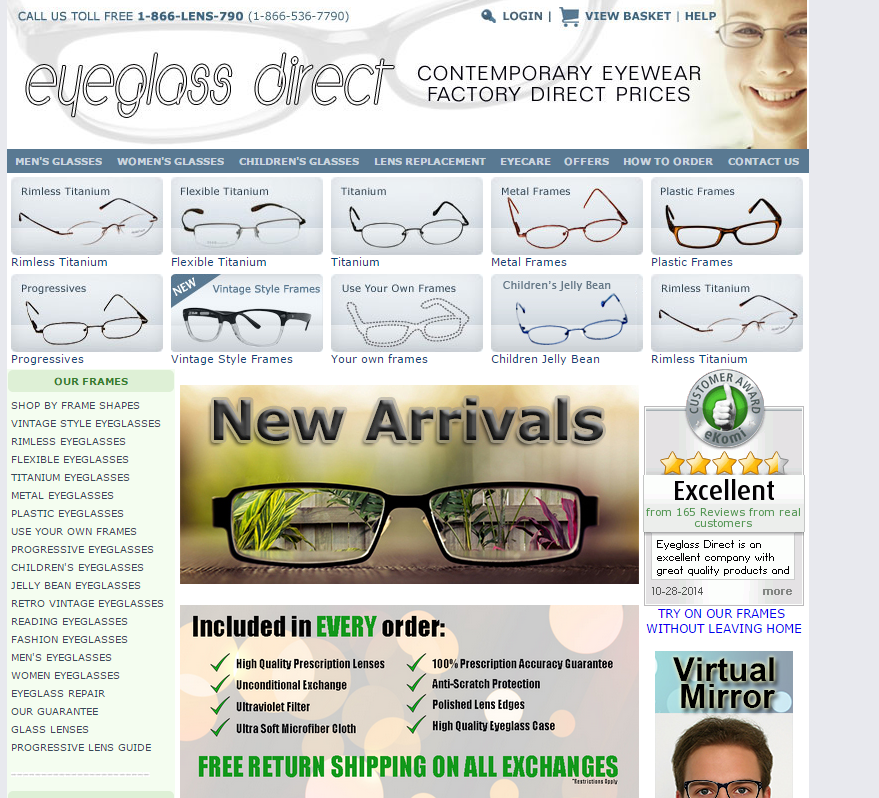
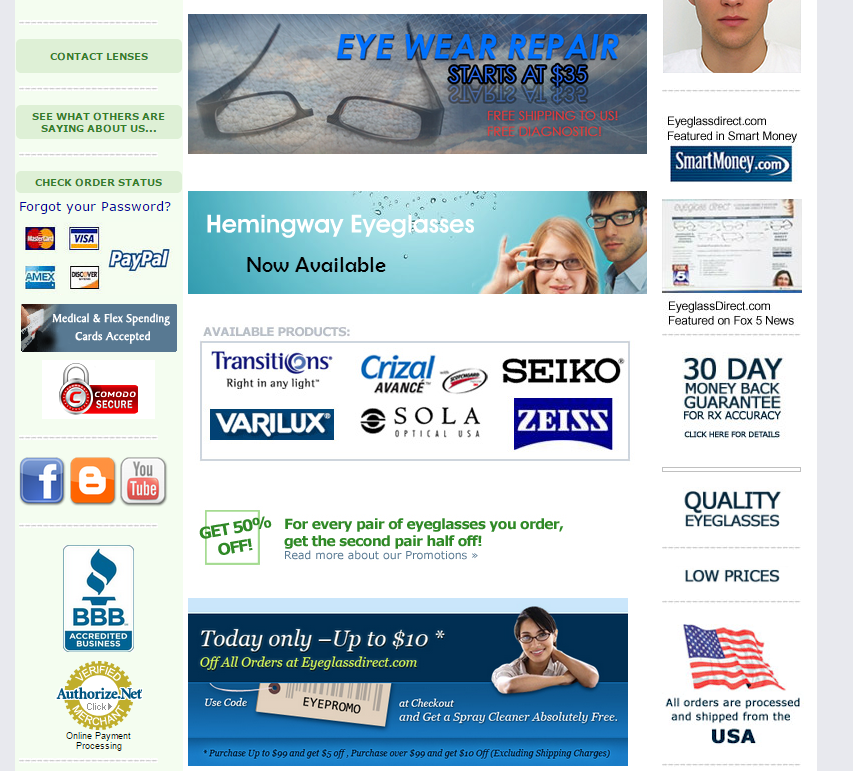
#4 Is Something Better Than Nothing?
A search for “women’s black boots” revealed numerous ads that took me to pages filled with exact-match options. However, this ad from Kohl’s fell short. The ad copy didn’t sync with the search query I entered into Google. It did deliver women’s boots, just not black boots exclusively. The landing page followed suit with an assortment of black and brown boots to look through.
Download your…
Time-Tested, Proven Marketing Strategies
That Actually Work
A handy checklist set that helps you drive traffic, make more money & spend less time doing it.
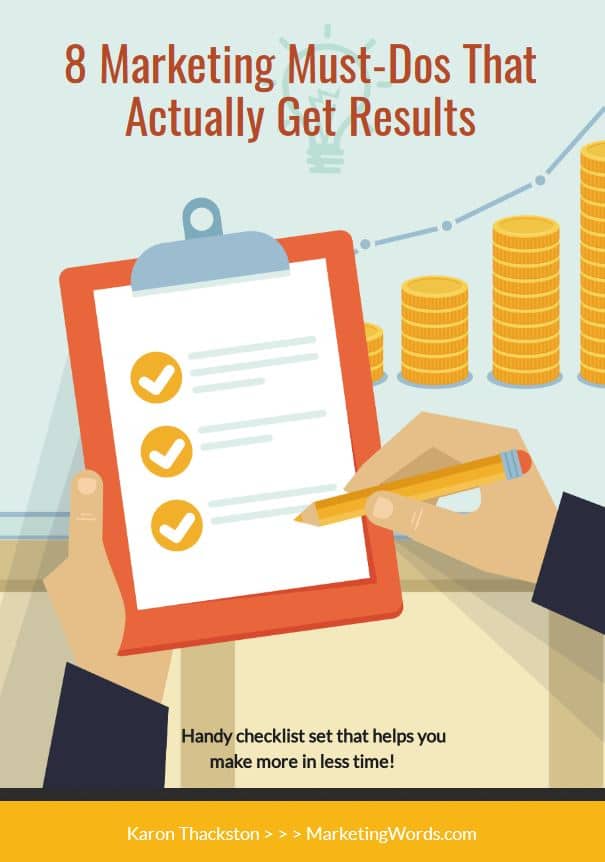
I understand that I will also receive weekly articles & videos plus periodic discounts, product notices & more. I can unsubscribe at any time.
While I was there, I simply clicked a link in the left navigation bar to narrow my options and — POOF — a page filled with all black boots appeared. When a search is this specific, the customer obviously knows what she needs/wants. Giving her some of what she wants, but not all of it is an irritant that may well cause her to click away.
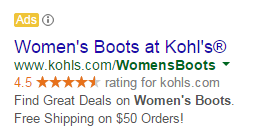
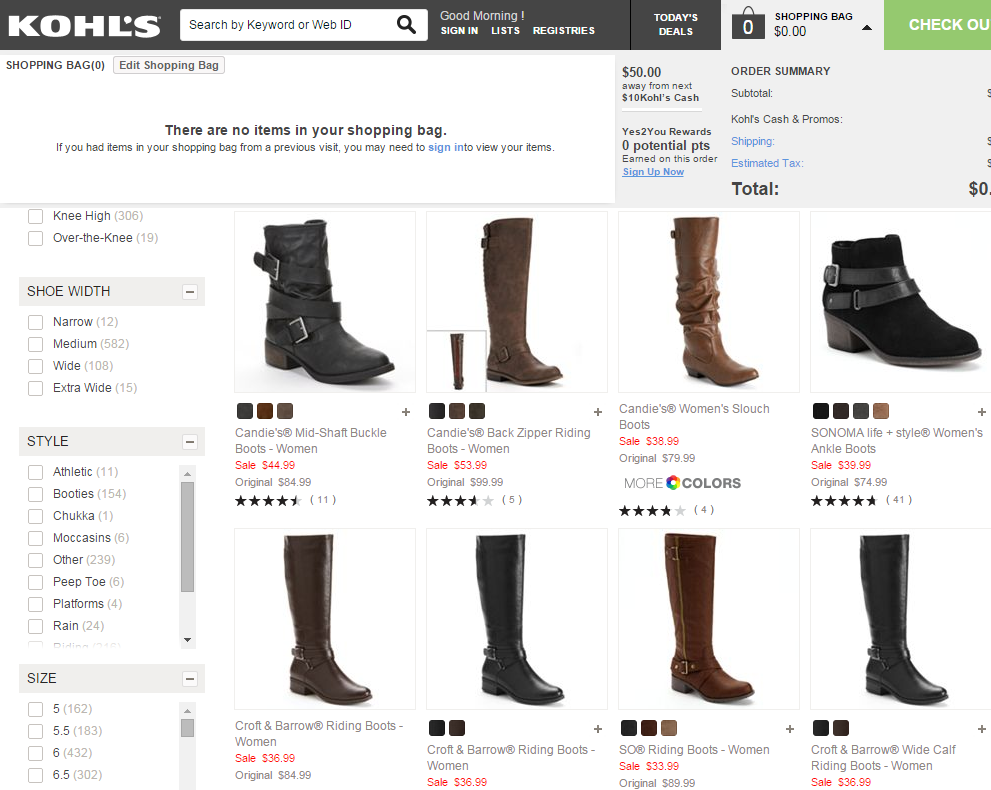
#5 Where Am I?
Looking for a roasting pan? In the process of searching for “roasting pan with rack” I found this prime example of a classic mismatch on every level. The ad copy had nothing to do with roasting pans and the landing page continued the mystery by taking me to a page filled with promotions on cast iron and stainless steel cookware sets. Not a roasting pan in sight!
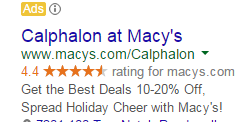
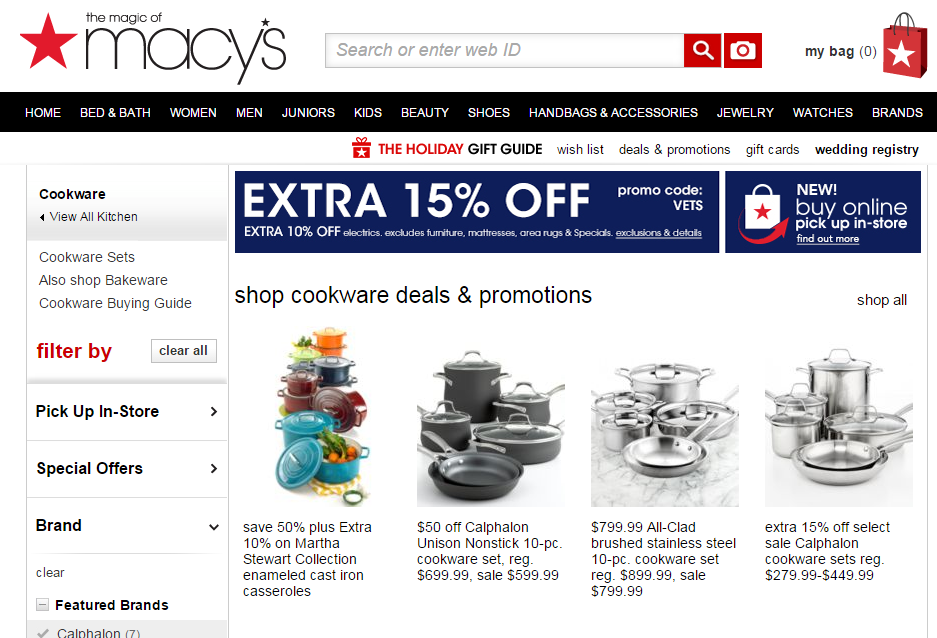
#6 – Bait and Switch?
I don’t actually thinking The Home Depot is trying a bait-and-switch scheme, but running an ad announcing one special and taking customers to a landing page that mentions a different one is confusing. In this case, the bait-and-switch was in the customer’s favor as the ad promised $37 whole-house carpet install and the landing page offered installation for free.
What was even more confusing was that I was searching for “flooring store Columbia” and got this ad specifically about carpet. What I really wanted was hard-surface flooring such as vinyl, ceramic tile or wood.
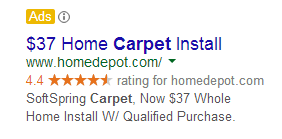
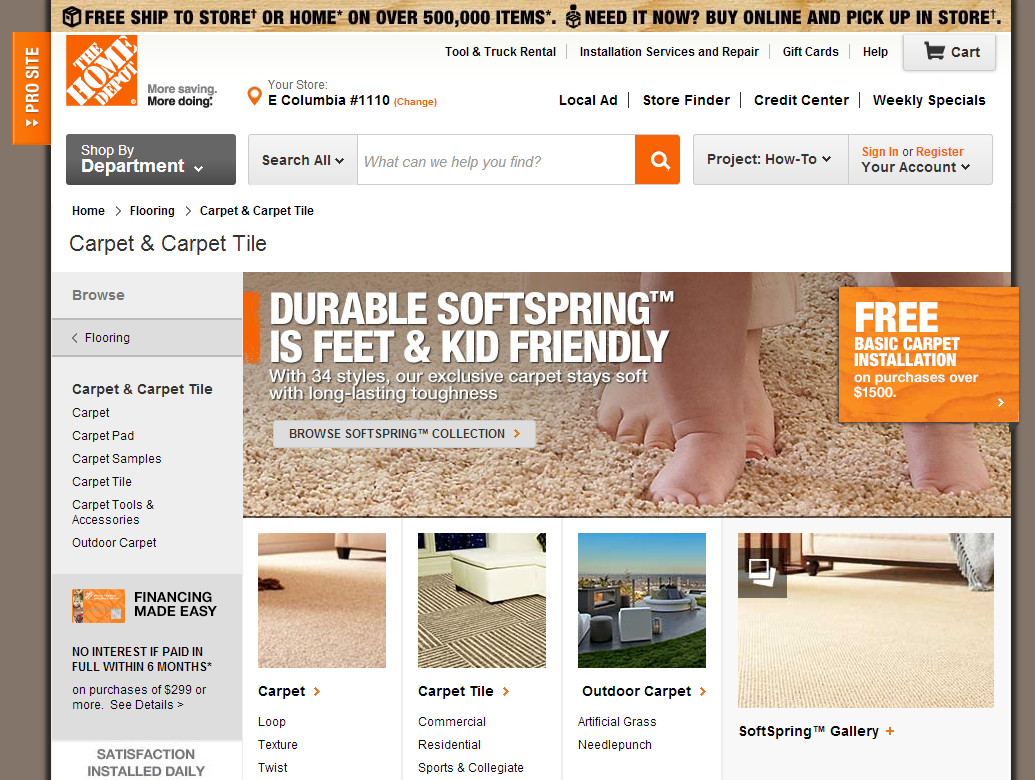
3 Tips for Perfect Message Match
To guarantee that your PPC ads pull with maximum conversions, make sure you use these strategies.
1. Mirror the Copy – Use at least some of the exact words you place in the PPC ad headline on the landing page itself and do so in plain view so it is easy for shoppers to recognize they are in the right place.
2. Mirror the Offer – If you make a specific offer in the ad copy (discount deal, something free, download, etc.) be certain to have the offer at the top of the landing page in a highly visible place. Again… it’s all about making it easy for visitors to find what they are looking for.
3. Link to Specific Pages – If your ad is about pink polka dot bow ties, link the ad to a page that deals exclusively with pink polka dot bow ties, not a page that shows every bow tie your company sells.
The more streamlined you can make the process of finding what they want for customers, the quicker they’ll click the buy button. Adding extra steps or unnecessary detours to unrelated or semi-related pages just creates friction, frustration and failure.
 If you’re struggling with how to write exceptional PPC ads, tweets, headlines or other short copy, discover more of Karon’s favorite tricks & tips in her awesome new mini-course “Short Copy Success Secrets.”
If you’re struggling with how to write exceptional PPC ads, tweets, headlines or other short copy, discover more of Karon’s favorite tricks & tips in her awesome new mini-course “Short Copy Success Secrets.”


